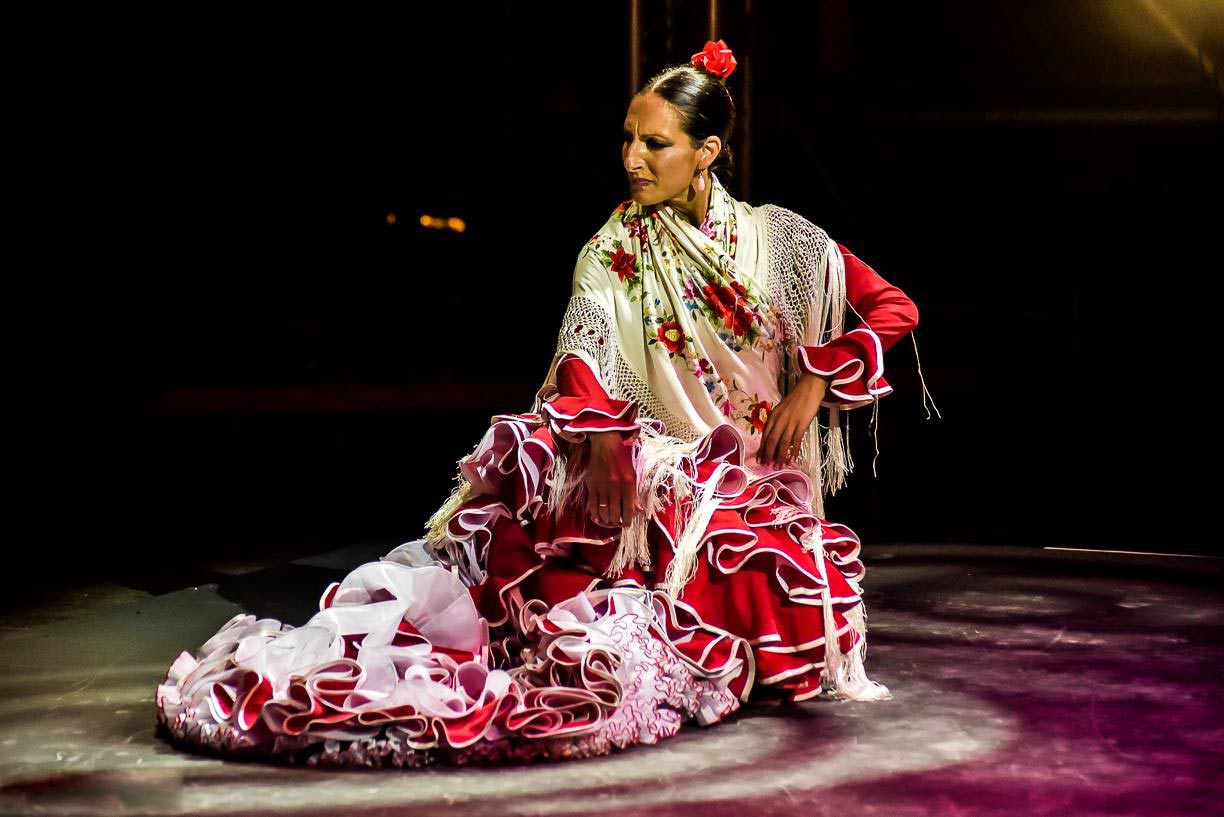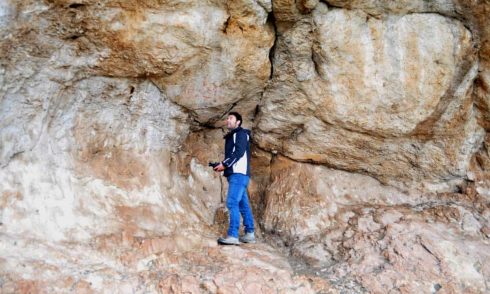BY CRISTINA HODGSON
WITH the grace of a ballet star, the passion of a flamenco artist and the regal air of a Queen Ursula Lopez was dancing towards her destiny at an age when most children are taking their first baby steps at school.
“There was never a time ‘before’ flamenco, it was just something we all did, my parents, grandparents and great-grandparents before them,” says the 44-year-old beauty, born in Cordoba, raised in Algeciras and feted today as one of the best flamenco dancers and choreographers in the world.
From being discovered by legendary film director Carlos Saura, to being a featured artist at the Spanish National Ballet and wowing audiences at Sadler’s Wells in London with her own production, Ursula Lopez is on point for her next challenge as director of the Andalucian Flamenco Ballet in Seville.
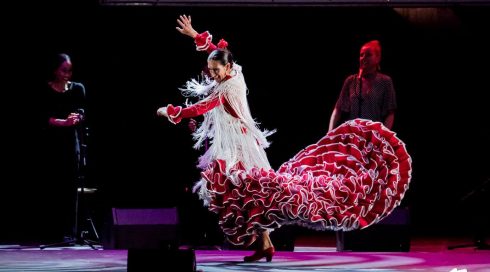
The Junta de Andalucía’s institutional dance company represents the region on stages all over the world and plays a fundamental role in attracting new audiences to experience Andalucia’s flamenco culture. Founded in 1994, it has won plaudits from the public and critics and a host of prestigious awards.
Don’t be fooled by the overpriced and often tacky tourist shows. Andalucia’s most iconic dance style is so much more than over-the-top frilly wardrobes, fancy fans, castanets, excessive use of microphones and showy light effects.
Born out of oppression and suffering, flamenco should above all be fierce, evoking passion, temperament and energy. Puro flamenco relies on improvisation and though renowned artists rehearse for choreographed theatre productions, their true personality and creative flair shine during intimate, spontaneous performances of singing, guitar, and dance. An authentic performance will put equal focus each.
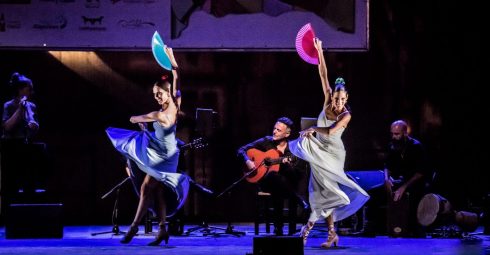
To master the art, a flamenco dancer spends years, often a decade or more, practising and perfecting the strict framework of rhythmic patterns. And even when the steps are down pat, a dancer will never stop practicing and training daily.
It’s this dedication that has propelled Urusla Lopez to the very top of her profession, as she explains.
How did it all begin?
I started in a dance academy at a very young age, graduating in both Spanish and classical dance. In Sevilla I had the opportunity to train with great flamenco maestros such as Manolete, an internationally reclaimed Spanish choreographer and dancer. And with Manolo Marín who choreographed the Opera Carmen, directed by Carlos Saura, which opened the doors to my professional career when I was 18.
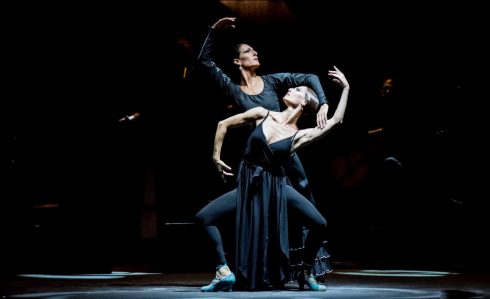
In 1996 I joined the Compañía Andaluza de Danza, known today as Ballet Flamenco de Andalucía. For the next eight years I performed in the company’s shows, touring the most important festivals and theatres around the world.
I then joined the Spanish National Ballet as a featured artist for two years before setting up my own dance company in 2007.
Flamenco was always part of my life. My sister, Tamara, too, had an extensive career in dance, with a 12-year long trajectory in the Spanish National Ballet. She has taught Spanish dance all over the world, from London to Chicago and even received an award from the Emperor of Japan for cultural merit. Together we run our dance academy, Studio Flamencodanza in Seville.
You’ve just been appointed Director of the company you danced for. How does that feel?
I received the news in a phone call, an incredible moment where I felt proud, happy, emotional all at the same time. It is a recognition of eight years of hard work where I proved my dedication to dance and flamenco day in and day out. Nothing is handed to anyone on a plate, especially not in flamenco. If you haven’t put the hours in, if you haven’t been consistent, dedicated and determined, it will show. In that sense, flamenco is very just.
It’s a great honour that the Andalucian Flamenco Ballet have placed their trust in me. They have seen the direction I want to take and have given me their backing. I believe my proposals stood out for their artistic direction, based on the dissemination of dance and Andalucia’s intangible heritage.
I now look forward to taking the Andalucian Flamenco Ballet to where it belongs. We have some very exciting projects coming up, both nationally and internationally, a three-year scheme which I’m very excited to lead.
You are currently holding auditions for the cast of the Ballet Flamenco de Andalucía (dancers, singers, guitarists, percussionists). What do you look for?
In a dancer, for someone who masters all the typical Spanish dance styles but whose underlying strength is flamenco.
Nowadays dancers are extremely well-prepared. They have all been dancing since they were about six years old and their formation is excellent. My generation did not have the extensive training they have. These young dancers have a confidence about their abilities that is enviable. It took me years to reach that level of self-assurance in my abilities. This is positive for someone who intends to perform in front of thousands of spectators.
In one way they have it easier as they are so well prepared, but, on the other hand, having so many well-prepared dancers makes the competition tougher. However, at the same time, there is a lack of individuality, of personal growth and experiences … shared moments with fellow dancers that I feel is missing. Perhaps social media is to blame. I know that my experiences helped me grow into the dancer I am today, and I’m grateful for them.
Has flamenco changed since you first started out?
With deep-seated roots, the principals remain the same as those taught from parent to child decades ago. I would even go as far as to say they remain steadfast from over a hundred years ago.
There is of course a natural evolution process, but just as flamenco is in Andalucia its most
significant expression, its deepest root, the fundamentals remain unwavering.
Your day-to-day must be hectic with your new directorship, your own dance company and dance academy, and two young children?
I won’t lie, it is very tough. It’s a very long day which begins before 7am and ends after 11pm. Non-stop. Dance has taught me to be strong, determined and resilient, but it’s my love for flamenco that gives me the drive to set new challenges and I’m lucky to have a career which I love and have always loved. I feel very fortunate.
Can anyone take lessons at your Flamenco Danza Academy?
Anyone, from beginners to advanced. The most important thing is not to feel intimidated or foolish. If you really let yourself go, flamenco is one of the best therapies. The connection between body and mind is incredible. To feel the music, you free your mind in an almost meditational way. And instead of feeling self-conscious, you will find it gives you confidence. With a good instructor and a bit of patience, even an inexperienced dancer can learn. What can I say, I highly recommend it!
For more information about Úrsula Lopez and her current production Natural Flamenco, an authentic showcase of Andalucia’s proud heritage, check out the following websites:
Click here to read more Spain News from The Olive Press.

